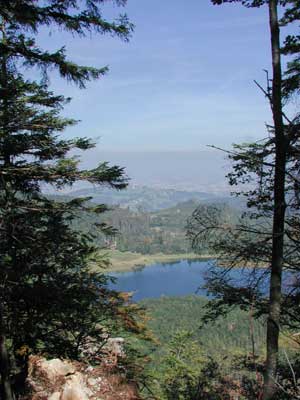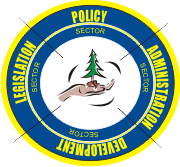REDD+ (Reducing Emissions from Deforestation and Forest Degradation) aims to reward or compensate tropical developing countries for keeping their forests intact or for reducing the scale of deforestation.
REDD+ resources
Reducing Emissions from Deforestation and Degradation plus Sustainable Forest Management
(REDD + SFM)
Sustainable Forest Management (SFM) is seen to be a key factor to REDD+►►
Definition of SFM by UN + FAO: A/RES/62/98►► Definition of SFM by UNFF: Sustainable forest management as a dynamic and evolving concept aims to maintain and enhance the economic, social and environmental value of all types of forests, for the benefit of present and future generations►► Definition of SFM by CIFOR: Managing (permanent) forest to achieve one or more clearly specified objectives of management with regard to the production of a continuous flow of desired forest products and services (e.g. carbon) without undue reduction of its inherent values and future productivity and without undue undesirable effects on the physical and social environment►► |
 |
SFM, according to internationally agreed language, is a dynamic and evolving concept that aims to maintain and enhance the economic, social and environmental value of all types of forests, for the benefit of future generations.
Want to read more about Sustainable Forest Management? Follow this link►
REDD+ Governance
 At national, regional and local level as well as for state owned and private owned land and forests
At national, regional and local level as well as for state owned and private owned land and forests
A new insurance product has been launched to cover private equity fund investments in Africa and other emerging markets against political risk. The political risk insurance has been developed by Overseas Private Investment Company (OPIC), the US government’s development finance institution. It...
Ghana's Ministry of Lands and Natural Resources is currently reviewing one of the sector's major policies the 1994 Forest and Wildlife Policy. The review has been necessitated by a number of emerging issues including institutional and legislative reforms within the forest sector and current global...
Author(s): Rocío Hiraldo and Thomas Tanner Programme Area: Research-Related Activities Paper No.: 4 Code: OP
Seiten
- « erste Seite
- ‹ vorherige Seite
- …
- 2
- 3
- 4
- 5
- 6
- 7
- 8
- 9
- 10
- …
- nächste Seite ›
- letzte Seite »
REDD+ Capacity building
 At all stages from indigenous people, local communities to individual forest owners
At all stages from indigenous people, local communities to individual forest owners
Community networks have emerged as an important force in enhancing forest tenure security and livelihood benefits for forest-dependent communities. In many countries, such networks have become part of the forest tenure reform process. They develop at the grassroots level, and are proving to be...
MINISTER of Amerindian Affairs, Ms Pauline Sukai says that contrary to opinion in some quarters, the rights of the Indigenous Peoples have always been accorded top priority by the present administration as evinced by its unwavering commitment to addressing various issues affecting the community.
Civil society, government organizations and local communities in many tropical rainforest nations have started REDD-plus preparation planning with a lot enthusiasm, eager to take part in this proposed global mechanism for the reduction of forest-related CO2 emissions.
The furore surrounding the statement issued by a conference of Amerindian leaders on land rights is, in the opinion of the Guyana Human Rights Association, misplaced and unhelpful. The sensitivity manifest by the supporters of the LCDS and REDD+, is uncalled for, the GHRA said in a statement...
Seiten
REDD+ Technical Support
 From national carbon inventory to national land use planning...
From national carbon inventory to national land use planning...
